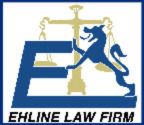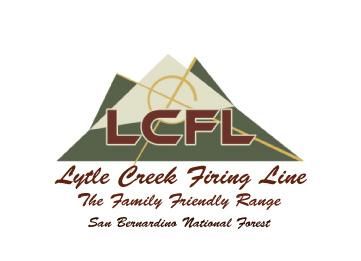US Supreme Court Rejects Veteran’s Challenge to Disability Benefits
- Home
- Journal
- Veteran Aid
- US Supreme Court Rejects Veteran’s Challenge to Disability Benefits
Just as we thought the ball started rolling for veterans seeking compensation, a recent decision of the apex court blocked all opportunities for backdated compensation for our nation’s heroes after an Air Force veteran challenged the federal department that denied him certain disability benefits.
At Paul Ehline Ride, our Military Veterans Service Organization helps raise awareness and advocate for much-needed legislation for the veteran communities. The decision by the Supreme Court requires your attention, and if we work together, we can help make a difference.
Arellano v. McDonough: A Case of Denied Retroactive Benefits
Arellano provided his services to the US Navy between 1977 and 1981 on an aircraft carrier. On one unfortunate day, the aircraft carrier experienced a collision where several of his shipmates suffered injuries, and some even died.
According to the lawsuit filed by Arellano, he suffered post-traumatic stress disorder and bipolar schizophrenia disorder following the accident. He applied for disability benefits in 2011 with the Department of Veterans Affairs after 30 years which got approved. However, the Department of Veteran Affairs approved his claim retroactively to 2011.
Following the decision, Arellano appealed as he believed that the Department of Veteran Affairs should’ve paid his benefits from the day he suffered the disability and not from 2011 when he applied for disability benefits. Arellano argued that his service-related mental illness prevented him from pursuing claims back then.
In the court documents, Arellano requested that the statute of limitations not apply to his case as he did not have the mental capacity to pursue a claim. The court of appeals rejected his appeal, forcing Arellano to take the matter to the US Court of Appeals for the Federal Circuit, where there was a split decision (6-6). Half of the judges believed that the law should be removed, while the other half stood with the policy, stating that it is the law.
Since there was a split in the decision taken by the US Court of Appeals for the Federal Circuit, the Supreme Court took the case and heard it on October 4, 2022. The US Supreme Court justices unanimously (9-0) rejected the appeals filed by Arellano, stating that Arellano’s case does not give rise to equitable tolling, a legal concept that pauses or “tolls” a statutory limitations period after it has commenced.
Justice Amy Coney Barrett wrote that the law is fair and that Congress gave the veterans one year to pursue claims rather than leaving the door wide open.
Veterans and service members all over the United States followed the Arellano v. McDonough case very closely in the hopes that a verdict in favor of Arellano could potentially open the gates for thousands of disabled veterans to petition for backdated compensation under exceptional circumstances. Many advocates believed that the equitable tolling deadline only applied to extenuating cases and that there are often extenuating circumstances when it comes to veterans.
Before Arellano’s case, there were zero chances for the veterans to ask for a waiver. However, the split decision at the US Court of Appeals for the Federal Circuit that prompted the US Supreme Court to step in gave the veterans some hope that the court may consider such circumstances as Arellano’s as extenuating and provide relief.
Federal law permits veterans to receive disability compensation if injured during military service. What’s unfortunate is that the Department of Veteran Affairs offers benefits to veterans for illnesses such as post-traumatic stress disorder and many others, which are often the ones that cause them to miss the one-year deadline.
Another Air Force Veteran Loses to a Law Interpreted by “Politically Motivated Actors”
Air Force veteran Thomas Buffington experienced something similar to Arellano. In 2000, he faced work-related disability and was eligible for disability payments. In 2003, the Air National Guard requested his services, and because of that, he stopped receiving disability benefits. In 2005, he discontinued his active duty service.
Buffington waited a few years before requesting the Department of Veteran Affairs to pay disability benefits for the period he had not received active duty pay. However, the federal department denied his claim, prompting Buffington to challenge the department’s decision that he believed did not follow the statutory text.
Unfortunately, Buffington lost the case when the federal court referenced the 1984 Chevron v. NRDC case, a doctrine that allows the courts to defer to the federal agency’s interpretation of the law. Many criticized the Chevron doctrine, believing the courts are the only place for justice and should not defer to the agencies.
The judges passed up the opportunity to limit the power of federal agencies when they had the chance to. Conservatives still hold the position that the regulatory bodies have too much authority and that the court’s decision to uphold the 1984 Chevron doctrine strips the veterans of independent judges and leaves them in the hands of politically motivated actors.
Come Join Us!
We will continue to help raise awareness of issues veterans face and fight for stronger laws that protect our nation’s heroes and their families. Come ride with us across America and join our cause in supporting the veteran communities.
Resources
General Stuff
Address
Paul Ehline Ehline Memorial Ride
3838 W Carson St.
Torrance, CA 90503
Phone : (310) 622-8719
© paulehlineride.org. All rights reserved.
Donations submitted through donation forms on PaulEhlineRide.Org are tax-deductible to the fullest extent allowed by U.S. and state laws. These will be in U.S. Federal Reserve Notes. Paul Ehline Memorial Ride™ is a U.S. nonprofit, tax-exempt charitable Section 501(c)(19) organization that benefits US Armed Forces veterans under the U.S. Internal Revenue Code. (Tax identification number 85-4040563.)





